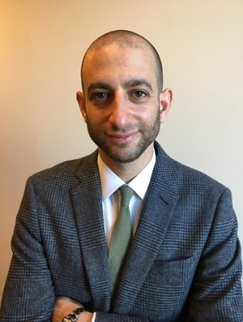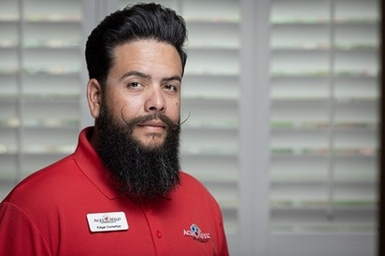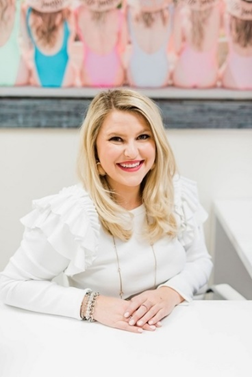As states begin easing restrictions that were put in place to thwart the spread of COVID-19, many small business owners still find themselves picking up the pieces. While the work never stopped – even while operations were suspended or limited – many are finding that a return to "normalcy" isn't exactly what they expected.
In this installment of business.com's small business COVID-19 diaries, we catch up with three entrepreneurs who have emerged from the initial shock of the pandemic in very different ways.
Looking for resources on how to help your small business through the COVID-19 pandemic? Visit the business.com COVID-19 resource page.
Todd Spodek, managing partner of Spodek Law Group
Spodek Law Group PC is a law firm in New York City that provides litigation services for criminal defense as well as divorce and family law. The firm employs 10 people.
Managing partner Todd Spodek, was approved for a Paycheck Protection Program loan of $200,000 in April under the initial round of funding for the program. Since then, he has cut extraneous expenses, caught up with past clients and legal adversaries, established referral networks to help clients access needed assistance, and established a pro bono program for first responders.
While Spodek acknowledges his business has been interrupted, he is largely optimistic.
"To be honest, everything kind of worked out OK," he said.
He attributes the success of the firm to effective planning at the outset of the pandemic, including an immediate cutting of expenses, pivoting to a remote work model, negotiating with landlords, and community outreach efforts that generated significant goodwill and helped to establish new referral networks.
"A lot of businesses are focused on sales … but the more you focus on sales when people are not in that mindset, the more distance you're putting into that relationship," Spodek said. "I took the approach that … our clients need the help now and need someone to organize things for them. We're focused on providing help. When their life implodes, we're there."
According to Spodek, the firm does this through initiatives like the pro bono program for first responders. It also partnered with an organization called Blueground, which provides fast, furnished housing to people who find themselves without a living arrangement on short notice. Additionally, the firm partners with a service called Crisis Text Line, which offers 24/7 support with a counselor.
Spodek emphasized that while he is proud his firm can provide that kind of support, it also goes a long way toward generating business in the future.
"When things improve, who do you think they're going to turn to?" he said. "I think a lot of businesses focus on selling their services, but you can provide much greater value if you are a trusted advisor to your clients."
Spodek's outlook is positive but measured. He said that although his firm has largely weathered the storm of the COVID-19 pandemic, balancing risk remains an important part of doing business in a post-coronavirus world.
"New York has passed this threshold where the numbers have improved to the point where people are more comfortable going out to the park, out to the street, out to the stores," he said. "Everyone has to balance that risk the way they see fit."
For Spodek, that means not pushing employees to return to the office until they are comfortable. It also meant extending payment plans and accommodations to clients during the crisis, many of whom have begun to repay what they owe.
"We've positioned ourselves so … we will be able to cherry-pick the clients that need our services, and those who don't need our services, we'll be able to point in the right direction."
For other small business owners dealing with the economic challenges posed by the coronavirus pandemic, Spodek offered the following advice: "I think the key is really to prepare yourself," he said. "The more preparation a business does, the better they're able to weather the storm no matter what it may be – lawsuits, employees leaving, competition."
Spodek added, "A lot of businesses won't be here after COVID-19, but the businesses that prosper from all this are the ones that are diversified, created value for their clients, and that when it was time to stand up for something, they did."
Edgar Comellas, owner of Aces Wild Casino Parties
Aces Wild Casino Parties is an entertainment rental business based in Orlando, Florida. Aces Wild brings the casino to your event, including dealer tables, dealers, decorations, even exotic animals.
Aces Wild Casino Parties has three full-time employees and works with about 80 independent contractors at any given time, said owner Edgar Comellas.
Comellas previously received a small loan from the Paycheck Protection Program, although it was not the full amount for which he applied. He was concerned about whether the money would be eligible for forgiveness due to confusion surrounding the U.S. Small Business Administration (SBA) guidance. However, he had no choice but to use the funds to cover payroll expenses.
"I'm talking with my CPA, talking with the bank, and everything is within their parameters," Comellas said, hopeful that his loan will be forgiven. "We'll see because no one has said when it will actually be forgiven. You need to have a very, very good paper trail to show these funds were used appropriately, which is understandable."
While Florida has gradually been reopening businesses, including restaurants and bars in phase two of its economic reopening plan, the events industry in which Comellas participates remains stalled. The bellwether for events in Orlando, Comellas said, is Disney World, which has targeted mid-July as a potential reopening date.
"The event industry is dependent on outside individuals coming to local attractions," Comellas said. "Right now, we're just sitting back, working on SEO, working on content and social media. But the prospect of business … we're starting to get requests for quotes for October, November."
If it takes that long for business to ramp up, Comellas said, he might have to close the doors on Aces Wild Casino Parties or reimagine the business model altogether.
"It makes me rethink perhaps the whole business altogether," Comellas said. "We might have to move from one concept to another – it could be casino dealer training. That's another market we could start reaching out to, especially since we can do it online."
Ultimately, Comellas likened his experience to navigating the five stages of grief.
"You're in denial, then there's bargaining … and acceptance," Comellas said. "Bargaining was 'Oh I'll get some funding from the PPP and try to keep it alive.' When you see that it doesn't matter, and you can keep pumping money into this, but there's going to be the same result … you just can't go with that plan right now.
"I'm in the acceptance stage where it might just be time to close it down and refocus on something else," he added. "When you're forced to take time away from work, you realize what things you really need to survive, what makes you happy and what you want to do with your time."
For small business owners struggling with the same difficult decision, Comellas offered the following advice: "Just like in nature, things burn down in a forest. Nonnative plants don't regrow, but things that are natural and should be there grow again," Comellas said. "You can let the brand fall, but if you had good clients and a good product, it can be rebuilt – a little bit cleaner, a little bit sleeker and a little bit faster."
Kendra Eaton, owner of Sprinkled with Pink
Sprinkled with Pink is a Dallas-based small business that produces handmade, personalized accessories and apparel for a range of occasions and events. The business employs two full-time employees and five part-time employees.
After a significant wait, owner Kendra Eaton told business.com Sprinkled with Pink was approved for a portion of the Paycheck Protection Program loan on May 1. In the month since, Eaton was able to bring back most of her team, many of whom had been furloughed when COVID-19 first led to economic shutdowns across the country.
"I'm really grateful we were able to get the funding, but there is still a lot of uncertainty around what we will owe and what will be forgiven," Eaton said. "[The government] acted quickly to get this money out, which is good, but now business owners have to make decisions about how to get all this forgiven. It makes you leery about spending any money."
Additionally, Eaton said bringing her team back to work meant implementing social distancing policies that would help protect the health of everyone in the workplace. This includes establishing rotating schedules, wearing masks and staying more than six feet away from one another, she said.
"We made sure we're social distancing," Eaton said. "We have a skeleton crew and made sure people are working at different times so we don't have too many people in the office. We have 2,600 square feet and seven people, so we can spread out."
As far as business, Eaton said their e-commerce model has afforded them the ability to pivot and continue generating revenue through the pandemic. One creative collection the team came up with was quarantine themed; another was based on the popular Netflix series "Tiger King." Although Sprinkled with Pink was able to continue operating, Eaton said it was far from uninterrupted.
"We want to just, for the rest of the year, hit our levels for 2019," she said. "Before, we thought we'd increase by 65% or 70%, but now we're just trying to hit the same levels as last year."
Eaton offered the following advice to other small business owners continuing to navigate the novel coronavirus pandemic: "Just have a plan for the rest of the year," she said. "Don't just plan a day out, even though it's hard to plan. You're kind of guessing but you need to have a plan."
For Sprinkled with Pink, this means multiple strategies and contingency planning for both ideal and catastrophic circumstances.
"And just keep your head up too. It can be a stressful situation, but if you're working as hard as you can, you need to relax to keep a hang of things," Eaton said. "Being in depressed mode is not going to help your business or employees, and they need you to have a clear head."
How are business.com readers emerging from the pandemic?
"My company's revenue dropped about 30% last month compared to what I had forecasted and what we did in March. I still consider us very well positioned, though, both because our margins are very high and because we're small [and] flexible. I expect us to bounce back relatively quickly and maybe even come out ahead, as our bigger competitors may struggle more and be forced to lay people off. Overall, I'm dropping my revenue forecast by 25% for the entire year, but I'm still optimistic about the long-term picture." – Biron Clark, founder of Career Sidekick.
"I keep hearing the words 'new normal' in the media and from colleagues, but the reality is that we are now living in a new economy. The sooner that we pivot our businesses toward this new economy, the better off we all will be … Not all of us can pivot our businesses, of course, but those of us who can need to do it now. It is a good exercise for all of us, as business owners, to take some time to step away from the day to day and think hard through the consequences of what is happening. I scheduled a few hours every week for calls with industry leaders whom I respect to discuss the current situation and walk through the likely scenarios for our industry. It was well worth it, at least one of those conversations changed my approach to a particular negotiation and resulted in a much more positive outcome." – Michael Puscar, CEO of Oiga Technologies.
"Remember that your survival hinges on agility…. In a crisis, your company's survival hinges on your ability to mobilize and inspire your talent. Your decisions and actions determine whether your people will be an asset or a liability. Ideally, your talent ensures adaptation by quickly developing and implementing a new operating model … While it's hard to manage panic and the impulse to make knee-jerk decisions, objectivity will be your saving grace. You can maximize strategic performance by crafting an aligned talent strategy that empowers your employees to handle the execution themselves. Mitigate your chances for failure and ensure success by using analytics and data to design your teams and hire the right people in each position." – Alphonso Cheponis, president and talent optimization consultant at Straightline Consulting Group.



